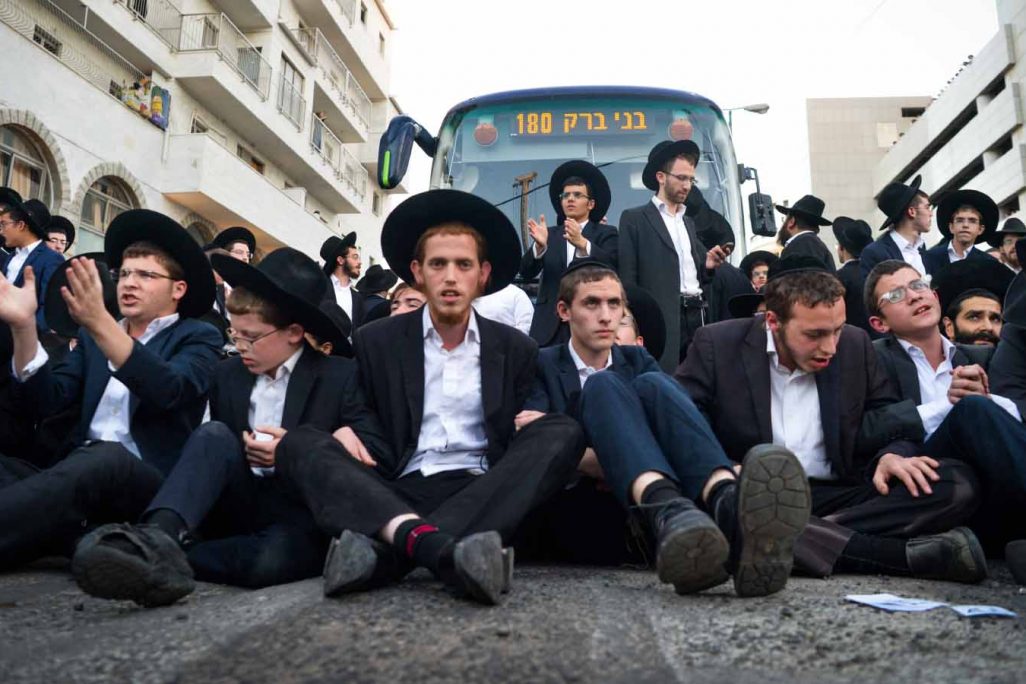In a dramatic ruling reversing the 75-year support of the state of Israel for yeshiva students who immerse themselves in Torah study, The High Court of Justice declared unanimously on Tuesday that there is no longer any legal framework for the government to grant blanket exemptions from military service to charedi yeshiva students. Moreover it added that the government cannot continue to instruct the IDF and Defense Ministry not to draft such men into IDF service.
The nine-judge panel also ruled that the government can no longer provide financial support for yeshiva students studying in lieu of military service since the law providing for that arrangement has passed.
The court did not however go into the details of how to enforce the law as it stands according to its new ruling, or how many charedi yeshiva students need to be drafted. There are an estimated 67,000 Haredi males who are eligible for military service.
The ruling could have dramatic political and societal ramifications since the charedi political parties fiercely oppose the draft for their constituents and are demanding legislation to reinstate draft exemptions, which some Likud MKs have already said they cannot vote for. A provisional law allowing for quotas of 3000 charedim per year to be drafted has passed its initial vote and is being discussed in Knesset committees before being presented for further readings.
The immediate effect of the court’s ruling on charedi males will be the slashing of all funding to yeshivos which defer army service, as well as kollelim whose members have not served in the army or received a complete exemption from service. Moreover, the Attorney-General has stated that several other budgets for charedim could be stopped as well, including municipal subsidies for poorer families and child care subsidies for families where the male is studying Torah.
These additional budget cuts could lead already impoverished families to severe financial difficulties, but they could be prevented if the Shas ministers in charge of the Interior Ministry and Labor and Social Affairs Ministry change the criteria for receiving subsidies to refer only to families where the wife works irrespective of the husband’s other activities [as long as he is not employed].
Charedi MKs reacted angrily to the court’s ruling. UTJ chairman and Housing Minister Yitzhak Goldknopf tweeted that the decision was “expected and very unfortunate,” since “The State of Israel was established in order to be a home for the Jewish people whose Torah is the bedrock of its existence. The Holy Torah will prevail.”
Moshe Gafni simply tweeted “as I said,” referring to an earlier post anticipating the ruling in which he alleged that “there has never been a ruling by the High Court in favor of yeshiva students and in the interest of the charedi public.”
“There is not a single judge there who understands the value of studying the Torah and [yeshiva students’] contribution to the people of Israel in all generations,” Gafni stated.
Jerusalem Affairs Minister Meir Porush stated that the ruling “inevitably leads to two states” — one being “the country that is being run as it is now” and another in which yeshiva students “will continue to study Torah as they used to in the country that Ben Gurion declared.”
“There is no power in the world that can force a person whose soul longs to study Torah to refrain from it,” he declared
















